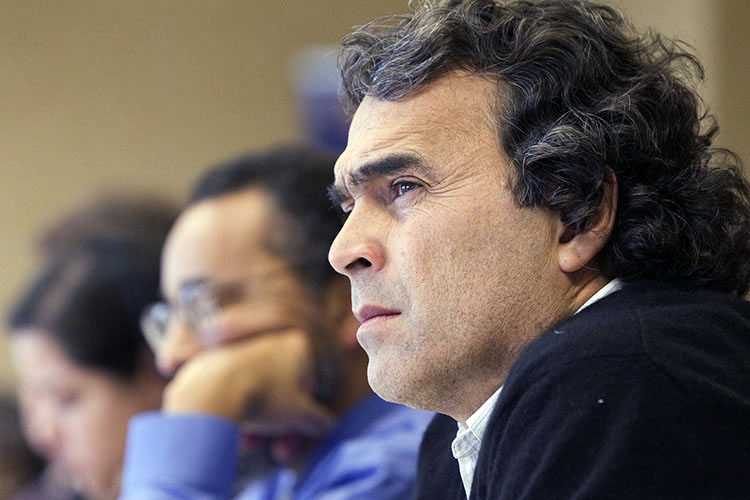Understanding Colombia’s peace pact
A leading figure in Colombia talks about the country's historic peace agreement with rebels and what Sergio Fajardo says is the chance for his nation "to write a new page."

August 29, 2016
A peace agreement taking effect today and bringing an end to more than 50 years of conflict between the Colombian government and rebels was the focus of a recent conversation between the director of UC Berkeley’s Center for Latin American Studies and Sergio Fajardo, former mayor of Medellin and governor of the country’s district of Antioquia.
Harley Shaiken and Fajardo spoke last week as negotiations concluded, and as eyes turned toward an Oct. 2 national referendum on the nearly 300-page accord reached between representatives of the Colombian government and the Revolutionary Armed Forces of Colombia (FARC) after four long years of negotiations.
“Turning that into material (in the agreement) that can be understood by any Colombian in any condition is quite a challenge from the pedagogical point of view and from the political point of view,” Fajardo told Shaiken.
He said that FARC “has to become part of the political spectrum” in Colombia. “They can bring their ideas without guns and weapons and we will be discussing Colombia and some of its very pressing needs, in particular our focus on education as an outstanding factor.”
Armed conflict by FARC soldiers is said to be responsible for an estimated 220,000 deaths and the dislocation of several million people from their homes. The group formed during the Cold War as a peasant force fighting imperialism.